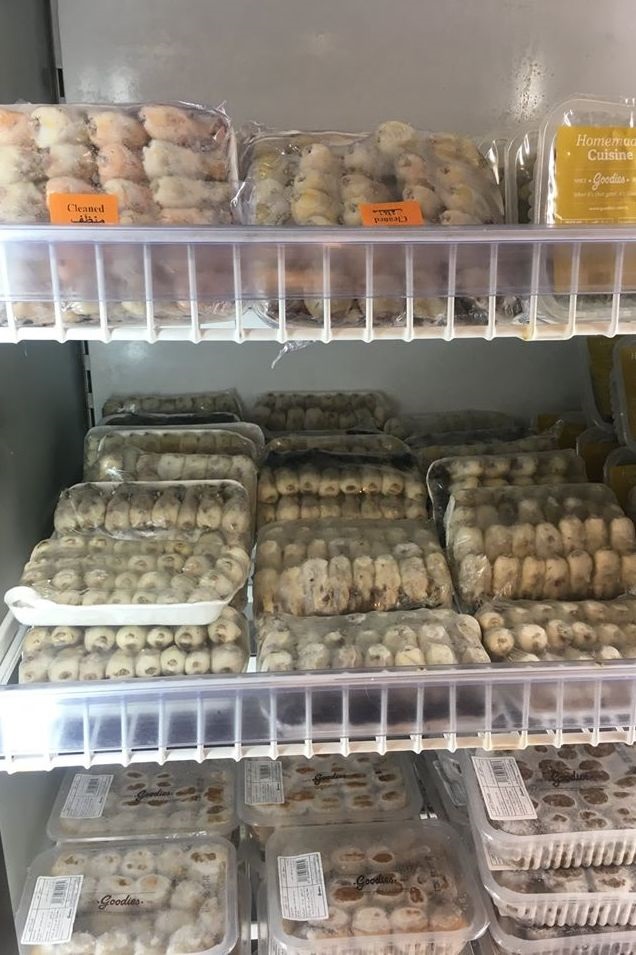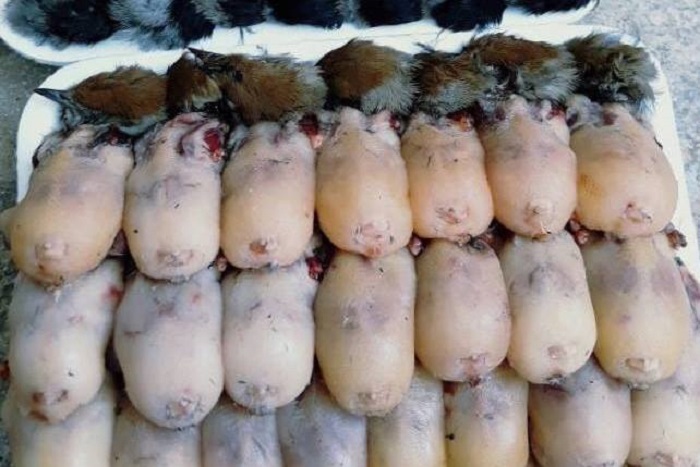Frozen warblers

Warblers, ortolans, larks, finches and other songbirds are a popular delicacy in Lebanon and are commonly offered for sale in restaurants and supermarkets. Besides shooting, mass commercial trapping with mist-nets and limesticks is the biggest problem for these species. Poachers are often well organised, operating large bird trapping facilities and setting up their trapping sites in strategic locations for migrating songbirds. Estimates by the CABS and our partners, suggest that several million small birds are trapped, killed and sold for trade each year.
Plucked and frozen songbirds can be found in the frozen food section of virtually every major supermarket, right next to pizza, fish sticks, and ice cream on sale. During surveys of randomly selected supermarkets, we counted 83 packages, each containing about 40 frozen blackcaps, in six stores alone. Thus, a total of over 3,300 songbirds were offered for sale in these markets alone. The price per pack is currently around $30, so given the hyperinflation in the country, songbirds are food for the high earners. Considering that there are hundreds of such larger supermarkets throughout the country, it can be assumed that several hundred thousand illegally caught songbirds are marketed through this distribution channel alone each year. This estimate does not include the amount of songbirds sold directly to restaurants or at markets and butcher shops, or consumed by trappers or migratory bird hunters themselves.

Bird trapping it is a lucrative business in crisis-ridden Lebanon, because they earn a good extra income of around one dollar per bird caught. The poachers therefore also accept long journeys to the northern Bekaa plain or to the coastal areas, where thousands of birds can be caught during the migration season.
Similar to the shooting of songbirds, the industrial sale as food is hardly questioned. The solution to this problem lies, on the one hand, in effectively combating bird trapping and raising awareness of environmental and conservation issues among the general public, and on the other hand, in the interests of the supermarket operators themselves. After a major press campaign by the CABS and its partners denouncing the sale of songbirds in the stores of the international supermarket chain Spinneys in 2018, the operating group reacted and removed the songbirds from its shelves as a result.






